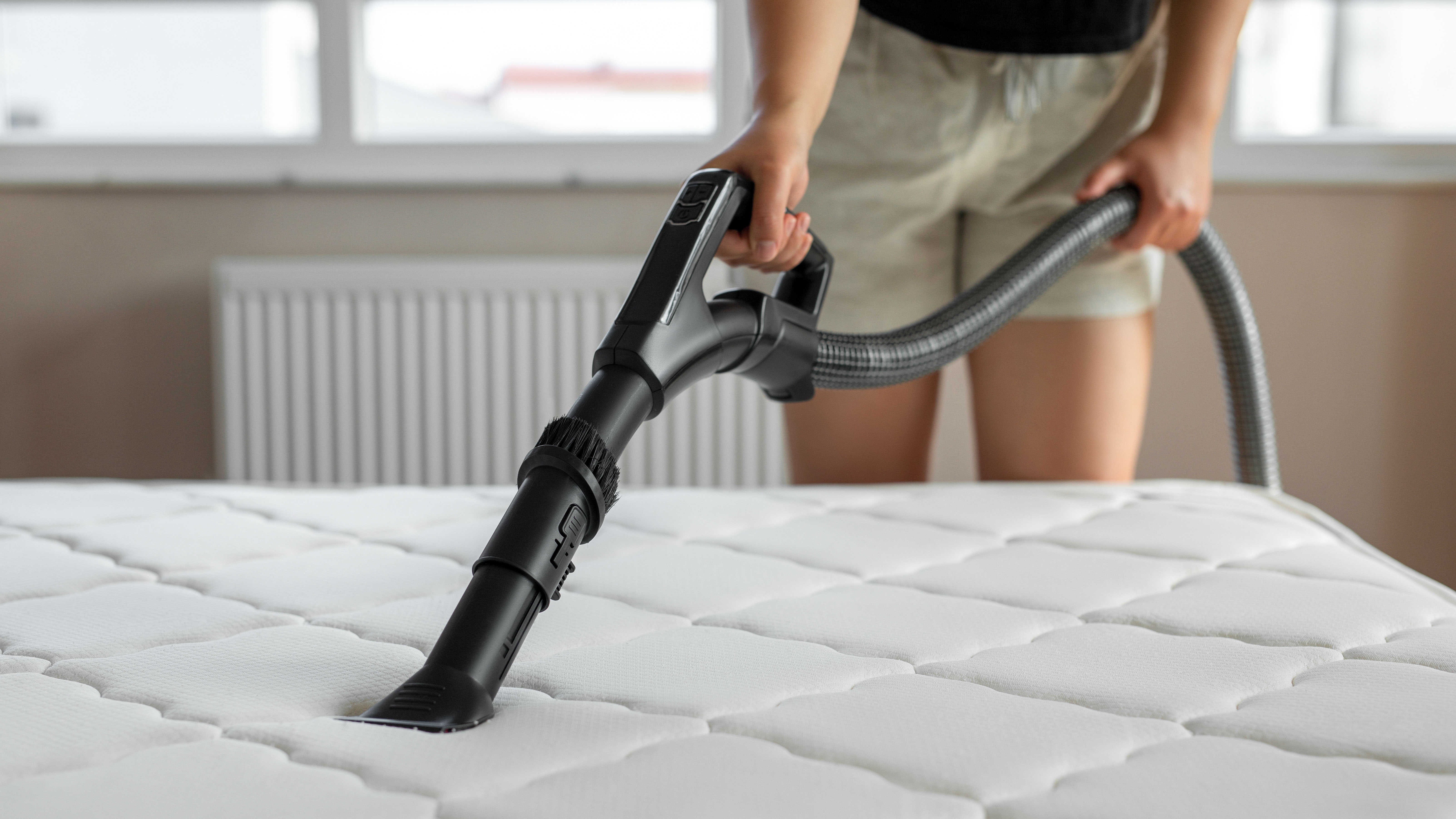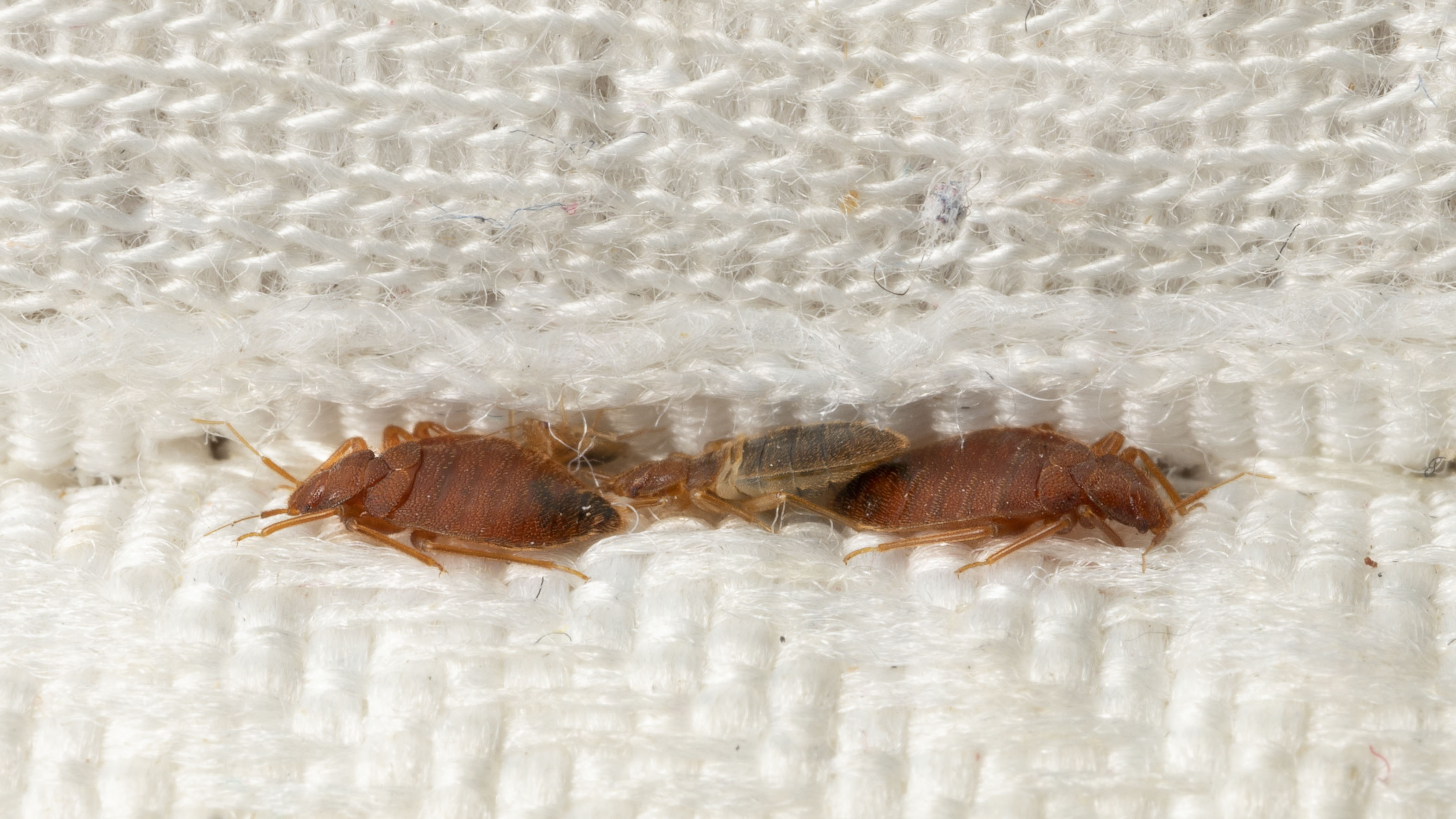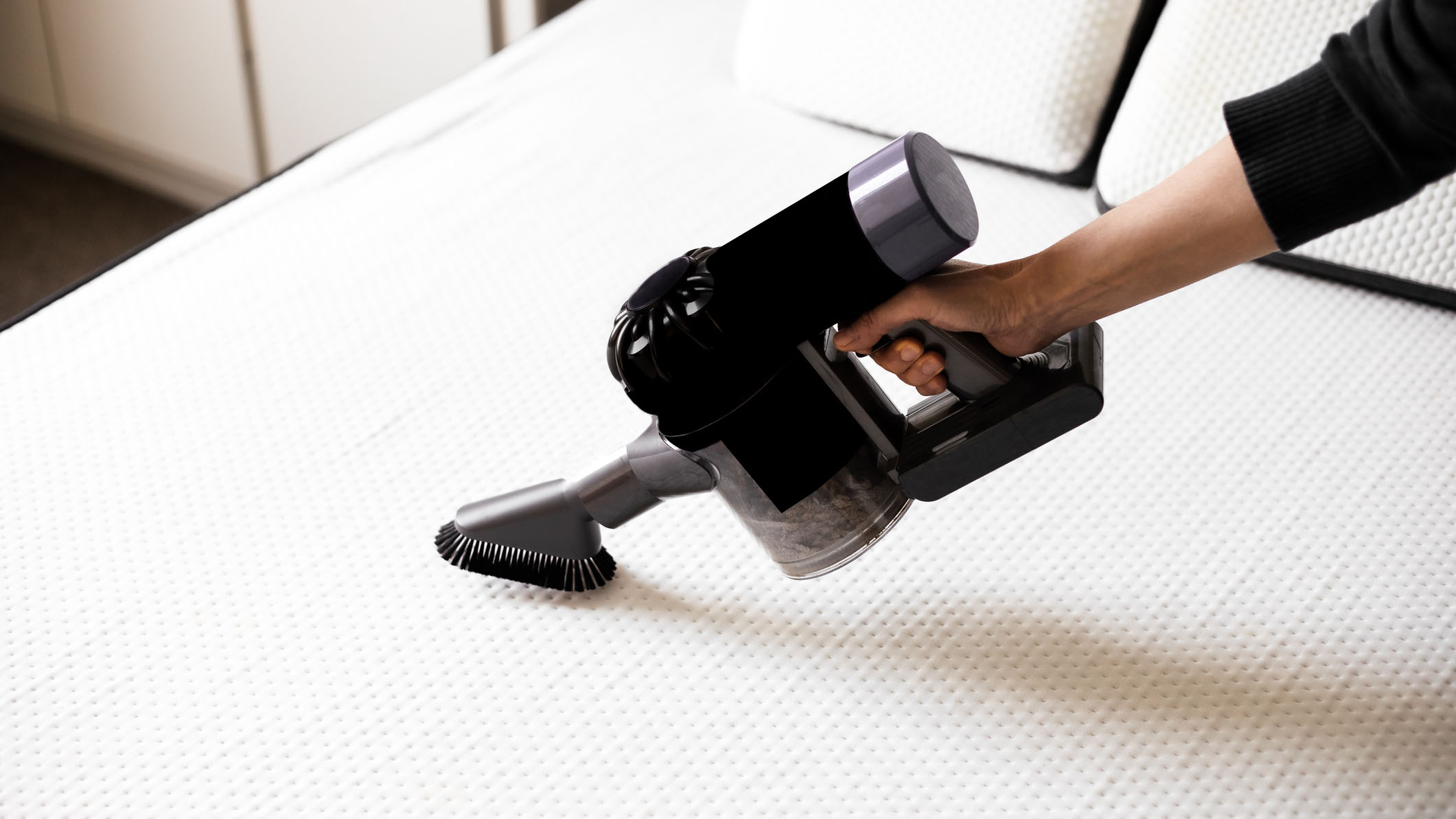5 reasons you need to vacuum your mattress regularly — and what happens when you don’t
Add vacuuming your mattress into your regular cleaning routine

Your bed should be a place of deep relaxation and comfort — but if you’re not regularly vacuuming your mattress then there could be some sleep-disrupting nasties lurking beneath its surface. Dust mites, bacteria and allergens can all build-up and silently compromise your sleep quality, and potentially even your health.
Keeping on top of your mattress maintenance is easy, you don’t need a special mattress vacuum cleaner, your regular vacuum is fine. Even the best mattresses require regular cleaning, doing so will not only keep allergens at bay but will also prolong the life of your mattress.
Here, we'll explore the five key reasons you need to regularly vacuum your mattress. Plus, we'll also explain what the consequences could be if you don’t. Ready? Grab your vacuum and let's get started.
5 reasons you need to vacuum your mattress regularly
1. Reduces allergens
Mattresses can harbor allergens such as pollen, pet dander and mold spores. Allergens within your mattress can compromise your sleep quality, causing you to wake with a stuffy nose, coughing and skin irritations. Prolonged exposure may also increase the frequency and severity of asthma attacks and other respiratory symptoms.
While it’s always a good idea to occasionally deep clean your mattress, regularly vacuuming your mattress in between those deep cleans can help you keep on top of the problem.
Vacuuming with a machine that has a high-efficiency particulate air (HEPA) filter can capture these allergens, preventing them from circulating in the air and causing allergic reactions. Use the upholstery attachment and go over the top at least twice to make sure you get every single spot. Using the stick attachment you can get into any seams and crevices where allergens may gather.
2. Keeps pests at bay
Dust mites and bed bugs can easily find their way into your mattress. Mattresses are the perfect breeding ground for these little pests so it’s important to keep on top of your cleaning regime to ensure they are kept at bay.
Sign up to get the BEST of Tom's Guide direct to your inbox.
Get instant access to breaking news, the hottest reviews, great deals and helpful tips.
There are plenty of signs that you have dust mites in your mattress such as disrupted sleep, dry cough and itchy skin. Vacuuming your mattress will help remove dust mites and their waste, reducing the allergen load in your sleeping environment.

Bed bugs will leave you with red, itchy welts, and as they’re larger than dust mites, you may physically see them. Whilst you’ll need to take more action to get rid of bed bugs, vacuuming will help remove the bugs already present, as well as their eggs.
Both dust mites and bed bugs like to hide in any seams or folds of a mattress, so use the stick attachment to great right inside any edges. Vacuuming will also disrupt their hiding spots so they’ll find it harder to survive and therefore reproduce.
3. Lifts dirt and debris
If you tend to enjoy the occasional snack in bed or you have pets who like to hop up on to your bed to sleep, then your mattress will naturally attract dirt and other debris. Without regular vacuuming, this provides a perfect environment for yeast, mold and bacteria to thrive.
Not only will this cause unpleasant odors, but it can be detrimental to your health too. For help with lifting dirt, debris and stains from your mattress, then incorporate some baking soda into your mattress vacuuming routine. Vacuum your mattress and then sprinkle with a layer of baking soda. Leave for a couple of hours before vacuuming again.
4. Removes mold spores
Warm sleeping environments, spills, dirt and debris all contribute to a perfect environment for mold to grow within your mattress. Mold is incredibly tricky to shift, not to mention harmful to your health. However, it can be avoided by proper mattress maintenance. Knowing how to spot mattress mold and dealing with it quickly can stop the mold from spreading rapidly and meaning that you’ll have to replace it.

Prevention is better than cure, and vacuuming your mattress regularly will remove mold spores looking for somewhere to land. It’s important to vacuum the top, bottom and sides of your mattress so that you get the whole area. Once you’ve vacuumed your mattress, always empty it in to an outside bin and wipe around the inside of your vacuum to stop the mold from spreading.
Also, making sure you deal with any spills and liquids that get on your mattress quickly is another good way of stopping mold from forming on your mattress.
5. Helps your mattress last longer
Vacuuming your mattress can play a significant role in extending its lifespan by maintaining cleanliness and reducing wear and tear. A regular vacuuming routine can help to remove dirt and debris which can cause abrasion and deterioration of the materials.
When dirt and debris becomes lodged in the crevices and seams of your mattress, it can eventually cause your mattress to lose its shape and support. Dirt and debris, including dead skin cells, pollen and pet dander, can also get trapped within your mattress, which can restrict airflow.
By removing these particles, you'll increase the airflow within the mattress which can leave you having a cooler night's sleep as well as preventing moisture buildup, which then leads to mold and mildew growth.
How often should you vacuum your mattress?
When it comes to vacuuming your mattress it’s a good idea to get into a regular routine. How often you do it depends on a few different factors such as whether you suffer from allergies or if your home gets dusty quickly.
It is recommended that you vacuum your mattress at least once a month, especially if you suffer from allergies. However, if you’re using one of the best mattress protectors then you could get away with leaving it longer between vacuuming. But if
It's a good idea to vacuum your mattress more regularly during the spring and summer months when there is a higher risk of pollen and other allergens. During winter, you'll still need to do it often but you can ease back a little.
Some mattresses can't be vacuumed. For example, when cleaning an organic mattress containing wool, it's better to use a soft brush instead of a vacuum cleaner. Waterbeds also shouldn't be vacuumed, as the suction can cause them to burst.
What happens when you don't vacuum your mattress?
If you don’t regularly vacuum your mattress then you're inadvertently inviting unwanted guests like dust mites and bed bugs to share your bed. Dust mites love to feast on dead skin cells which build up in your mattress night after night. They also love the warm, humid environment of the mattress, which is disrupted when you strip, vacuum and air your bed.
Ultimately, mattresses are an investment. If you want your mattress to last as long as possible, then it requires regular maintenance, such as cleaning. Regular vacuuming will not only keep it fresh and increase its lifespan, it can prevent the breakdown of the mattress fibers which will eventually impact your comfort levels.

Rachael is a freelance journalist based in South Wales who writes about lifestyle, travel, home and technology. She also reviews a variety of products for various publications including Tom’s Guide, CreativeBloq, IdealHome and Woman&Home. When she’s not writing and reviewing products she can be found walking her Sealyham and West Highland terrier dogs or catching up on some cringe-worthy reality tv.
